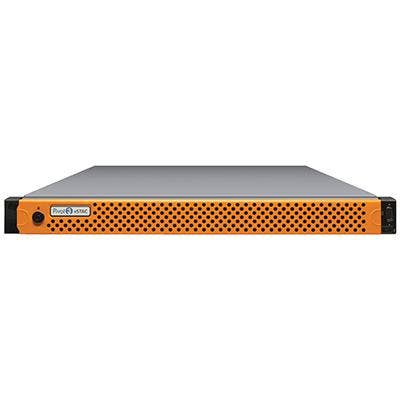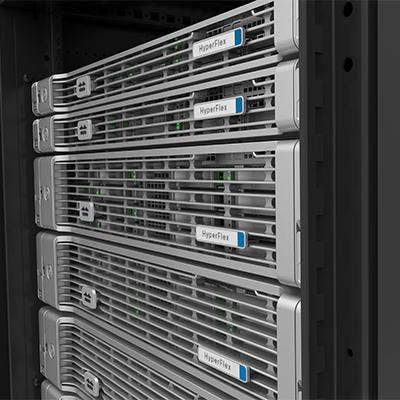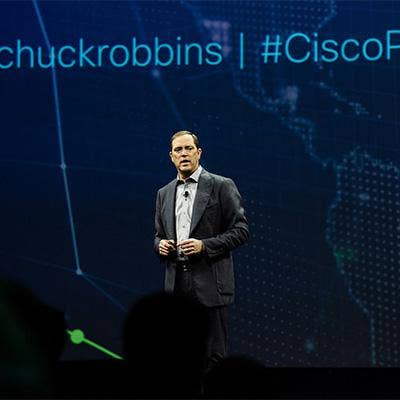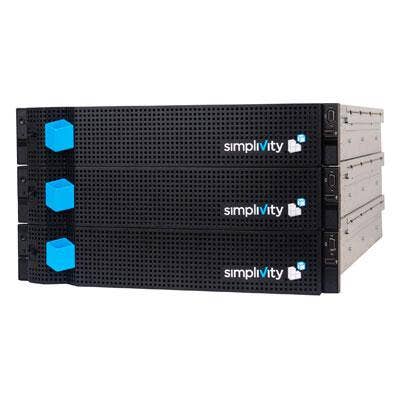Nutanix, Pivot3 And HyperFlex: Breaking Down Cisco's Bullish Hyper-Converged Strategy

Cisco's Many Hyper-Converged Bets
It has been a historic year for Cisco on the hyper-convergence front in 2016 – forming new partnerships with hyper-converged vendors Springpath and recently Pivot3, while launching its own solution: HyperFlex Systems.
This comes as the hyper-converged market is heating up, according to research firm IDC, with sales increasing 148 percent year over year to $372 million during the first quarter of 2016.
Cisco's strategy in the hyper-converged marketplace is to build, buy and partner where necessary to meet the demands of customers, according to a company spokesperson.
CRN takes a deep dive into where Cisco is placing its bets, and where it's not, in the hyper-convergence market.

Nutanix Rivalry Heats Up
CRN was first to report another rift between Cisco and Nutanix after its competitor unveiled its new hyper-converged infrastructure software stack for Cisco Unified Computing System (UCS) C-series servers.
Sources told CRN that Cisco was disavowing the Nutanix-Cisco hyper-converged offering, telling channel partners that Cisco was in no way supporting it.
"Essentially, Cisco is saying Nutanix is like any other guy off the street who can buy a bunch of UCS servers, slap software on them, and sell them as an appliance," said one source familiar with the situation who asked not to be named. "It will be interesting to see where this goes."

On-Boarding Pivot3
Pivot3 recently said that its vSTAC OS software achieved Cisco compatibility certification – unlike Nutanix – with Cisco's UCS and UCS Mini computing platforms. Forming another alliance in this space shows that Cisco is spreading out its hyper-convergence bets.
Forrester Research named Pivot3 a leader in the hyper-converged market with more than 1,600 customers. Pivot3 recently reported that its first-half 2016 revenue grew 103 percent compared with the second half of 2015.

Cisco's Pivot3 Strategy
Pivot3 was one of the earliest vendors to ship hyper-converged solutions. The Austin, Texas-based company owns software that simplifies operations and unifies the internal storage contained within each server into a global pool of capacity.
Pivot3 says using its software with Cisco eliminates the need for an external SAN by delivering up to 84 percent usable capacity within the blades inside UCS Mini. In addition, the combined Pivot3-UCS solution lowers the cost and complexity of maintaining an external SAN while also reducing the rack space, power, cooling and administrative resources historically required, according to a release.

500 Hyperflex Customers
Cisco recently reported its fourth fiscal quarter results, which was the first full quarter where HyperFlex was sold in the market since its launch in March.
"We already have approximately 500 customers and over a quarter of these are net new to UCS," said CEO Chuck Robbins during the earnings call. "We're off to a great start with a solid pipeline and strong customer feedback."
According to Cisco's numbers, HyperFlex is attracting more than 100 hyper-converged customers per month, which is a solid number as the market is poised to expand. For the company's overall fiscal 2016, Cisco's data center sales grew 5 percent from fiscal 2015 to $3.36 billion.

Springpath On Horizon
Cisco acquiring Springpath has been on channel partners' minds for nearly a year. The network leader owns an undisclosed stake in Springpath and has been working with the startup since it was founded in 2012 – leading a Series C round of funding last year for an unknown amount.
Sources have told CRN that Cisco was close to making a bid to buy Springpath, which has shifted to become a Cisco-only OEM development company. Robbins (pictured) told CRN last year that the company's strategy in this market is to partner, not acquire, which has shown to be true thus far.

Lawsuit Obstacle
A potential obstacle in Cisco's way to acquire Springpath is an impending lawsuit filed in September 2015 against Springpath by hyper-converged competitor SimpliVity.
SimpliVity alleges that Springpath infringed on SimpliVity's storage-related technology patent when Springpath created its software-defined storage Data Platform product. The platform is Springpath's key product inside Cisco's HyperFlex solution.
If SimpliVity wins the case, the company could be awarded damages and potentially ban Springpath's Data Platform product from being sold due to infringement technology.

Cisco-SimpliVity Continues
While Cisco is slamming Nutanix and forming hyper-converged partnerships, some might forget that the networking giant already has an alliance with SimpliVity. For nearly two years, SimpliVity has been shipping its OmniStack hyper-converged platform on Cisco UCS servers.
Cisco executives told CRN that the company doesn't intend to walk away from its existing UCS partnership with SimpliVity, although it did view Springpath's technology as superior and leads with it in sales discussions with customers. Although SimpliVity is bullish on the partnership, it will be interesting to see how this relationship stays afloat over the next year.

Bumpy Road Ahead With Nutanix
Cisco and Nutanix have had a rough relationship. Last year, sources told CRN that Cisco offered $4 billion to acquire Nutanix, compared with Nutanix's asking price of around $6 billion to $7 billion.
The two companies also did some trash talking when Cisco unveiled HyperFlex. Nutanix said Cisco didn't have a proven track record when entering new markets, which Cisco's Robbins strongly disagreed with.
Nutanix’s annual revenue for fiscal year 2016, which ended July 31, was $444.9 million, representing an 84 percent year-over-year increase, according to a filing with the U.S. Securities and Exchange Commission. Cisco and Nutanix will likely be duking it out for hyper-converged supremacy for years to come.